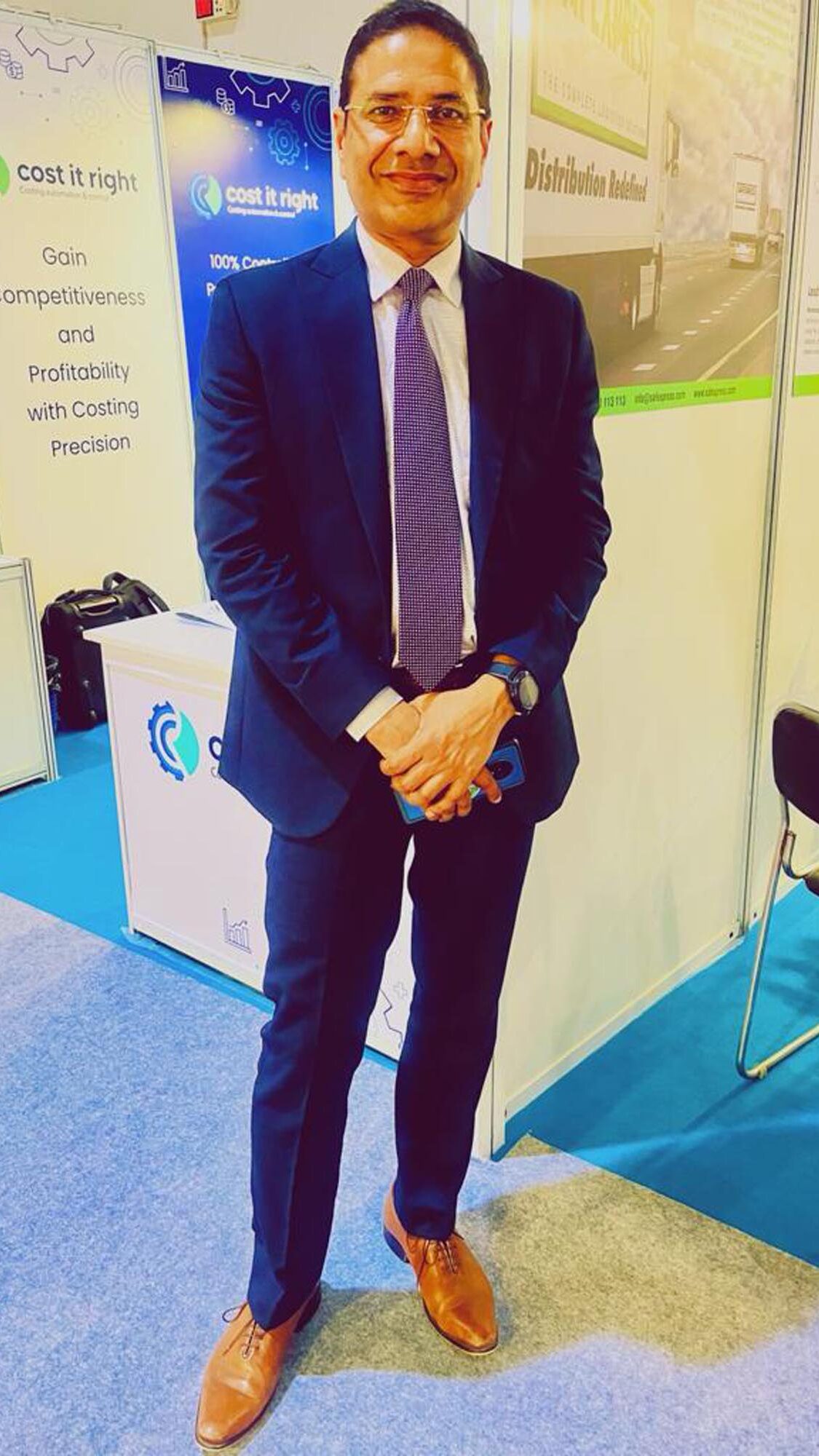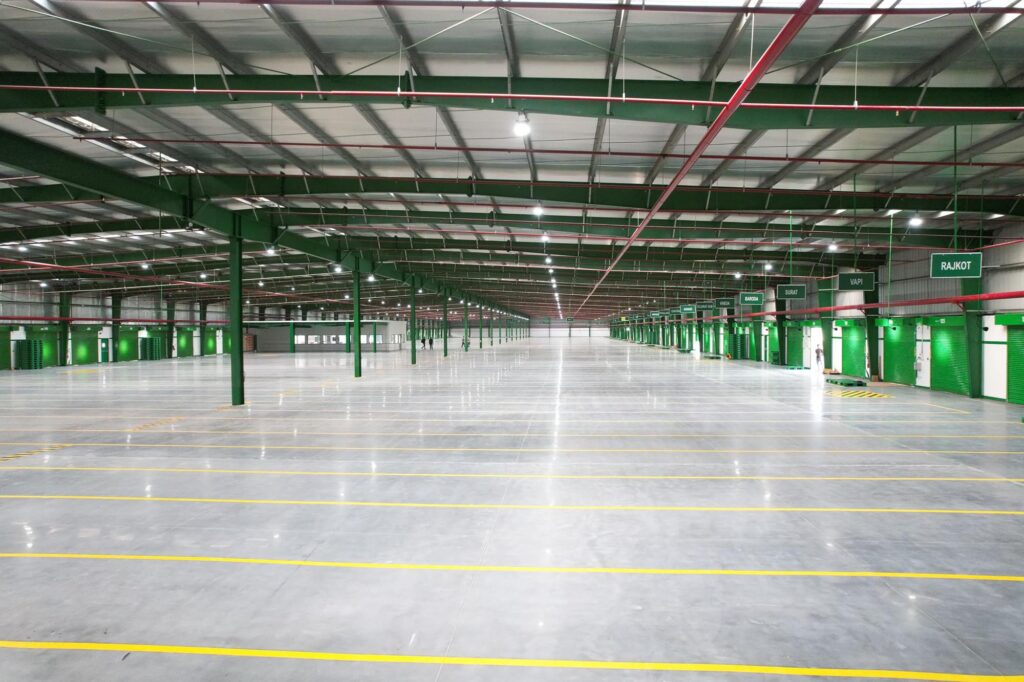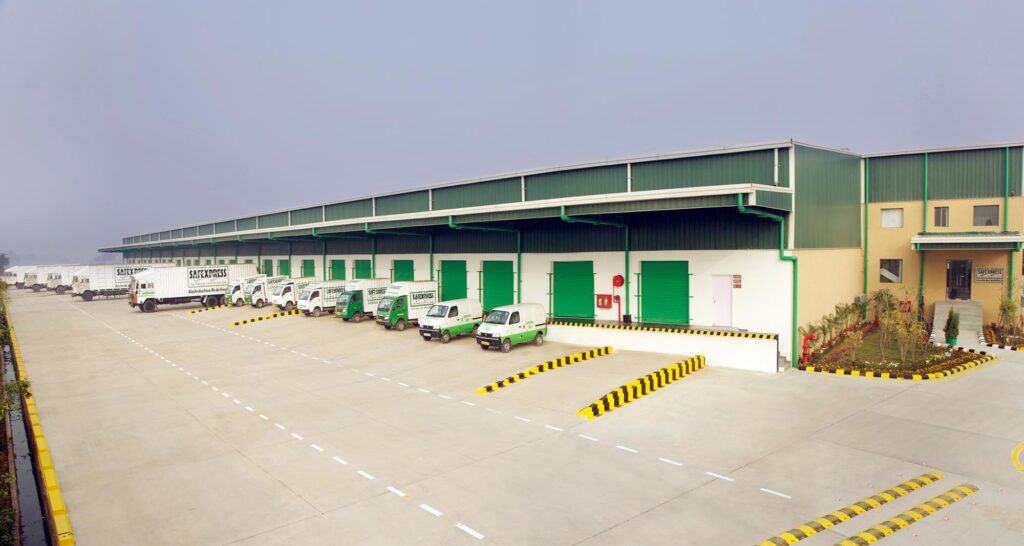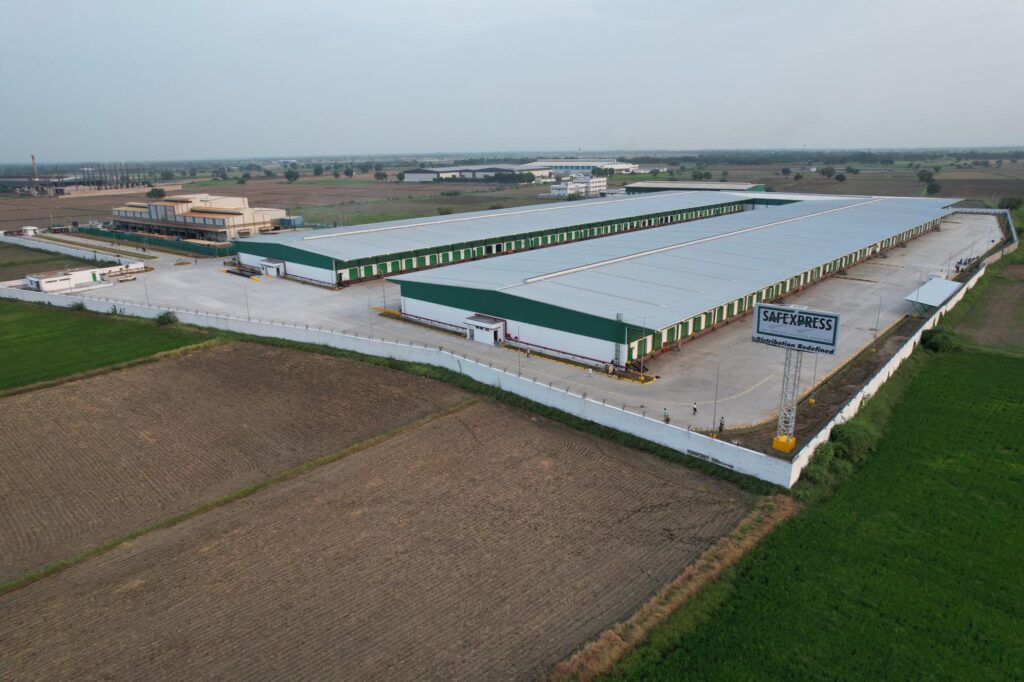
The Indian logistics sector is undergoing a rapid transformation driven by technological advancements and regulatory changes. Safexpress, a leading logistics service provider, is adapting to these changes while maintaining its focus on sustainability and operational excellence. In this interview with N. Balasubramanian, Vijay Vashisht, VP, Safexpress Pvt. Ltd. delves into the strategies and perspectives of his company on various aspects of the logistics industry.
What changes do you see in the Indian logistics sector – both pro & con? How is Safexpress adapting to the same?
The Indian logistics sector is witnessing significant changes. Positive changes include the adoption of IoT, AI, and blockchain, which improve supply chain visibility and real-time tracking. Initiatives like the Bharatmala project and Dedicated Freight Corridors enhance connectivity and reduce transit times. The Goods and Services Tax has streamlined interstate logistics by removing multiple tax barriers, speeding up goods movement. The rise of e-commerce has driven the demand for logistics services, spurring innovations in last-mile delivery and warehousing. There is an increased emphasis on green logistics practices, such as electric vehicles and eco-friendly packaging, promoting sustainability.
However, there are also negative changes. Frequent regulatory changes create uncertainties and increase operational complexities. Despite improvements, issues with road quality, congestion, and remote area infrastructure persist. The lack of skilled labor affects efficiency and service quality. Rising fuel prices and maintenance costs impact profitability and increase operational costs.

Safexpress has been proactive in addressing these changes. We invest in advanced technologies for better supply chain management, including real-time tracking and automated warehousing. The company is expanding its warehousing and distribution network to ensure faster deliveries. We incorporate sustainable practices, using fuel-efficient vehicles and optimizing routes to reduce our carbon footprint. Continuous training programs help to upskill our workforce, enhancing service quality. By offering customized logistics solutions and maintaining strong client relationships, Safexpress remains customer-centric, positioning itself as a leader in the evolving logistics sector.

How important are the automotive and textile verticals for Safexpress? What % of your overall revenue comes from these two segments?
The automotive and textile sectors are highly significant for Safexpress. These verticals contribute substantially to the company’s overall revenue. Specifically, the automotive sector accounts for approximately 18% of Safexpress’s revenue, while the textile sector contributes around 12%.
These sectors benefit from Safexpress’s extensive network and advanced logistics solutions, ensuring timely and reliable delivery across India. The company’s focus on technological innovation and tailored services helps it cater effectively to the specific needs of these industries.
How is the National Logistics Policy (NLP) aiding companies like Safexpress? How much has the policy helped improve the status of the country’s logistics sector and what more do you think needs to be done in this regard?
The National Logistics Policy (NLP) significantly aids companies like Safexpress by enhancing infrastructure, streamlining regulations, and promoting digital integration. It emphasizes the development of multimodal logistics parks, dedicated freight corridors, and improved road and rail networks, which reduce transit times and costs. Regulatory simplification under NLP reduces bureaucratic hurdles, benefiting logistics providers by minimizing delays and compliance costs. Additionally, NLP promotes the use of technology for better logistics management, enabling companies like Safexpress to enhance real-time tracking and supply chain visibility. The policy has notably improved the status of India’s logistics sector by reducing logistics costs, previously about 14% of GDP, aiming to bring them down to 8-10%, aligning with global standards. Enhanced infrastructure and streamlined processes have made the sector more competitive globally, attracting investments and fostering growth.

However, further improvements are needed. Last-mile connectivity remains a challenge, especially in remote areas, requiring better road infrastructure and local delivery networks. Improved intermodal connectivity between road, rail, air, and sea transport can further optimize logistics operations. There’s also a need for a stronger focus on sustainable logistics practices, such as adopting electric vehicles and green warehousing. Wider and more uniform adoption of advanced technologies across the sector can enhance efficiency and transparency, benefiting all stakeholders.
In conclusion, while NLP has brought significant advancements, continued focus on infrastructure, technology, sustainability, and regulatory reforms is essential for further progress.
From an emission and technology perspective, how do you see the Indian trucking sector shape up? As the first customer of one of the leading truck OEMs’ electric truck, how does Safexpress view this entire emission transition in the Indian market?
The Indian trucking sector is poised for a significant transformation with the advent of diverse powertrain options such as Electric, CNG, LNG, and Hydrogen (H2). This transition is driven by the need to reduce emissions and enhance sustainability. As the first customer of a leading OEM’s electric truck, Safexpress views this shift positively, recognizing the potential for electric vehicles (EVs) to reduce carbon footprints, lower operational costs, and improve air quality. EVs, along with other alternative fuels like CNG and LNG, offer cleaner, more efficient solutions compared to traditional diesel engines.
Technology and data play crucial roles in this transformation. Advanced telematics and IoT enable real-time tracking and monitoring of vehicle performance, optimizing routes, and reducing fuel consumption. Predictive analytics and AI help in maintenance scheduling, minimizing downtime and enhancing fleet efficiency. Additionally, blockchain technology ensures transparent and secure supply chain operations, further improving reliability and trust.
Safexpress is committed to embracing these innovations, leveraging technology to stay ahead in the market. The company’s adoption of electric trucks is a testament to its dedication to sustainability and operational excellence, positioning it as a leader in the evolving logistics landscape. Continued investment in alternative fuels and advanced technologies will be key to driving the sector towards a greener, more efficient future.
How is business at Safexpress? How was FY24 for your business and how has the first quarter of FY25 been?
In FY24, Safexpress experienced significant growth and consolidation in the Indian logistics market. The company expanded its network and infrastructure, improving service reliability and customer satisfaction. Technology adoption played a crucial role, with advancements in data analytics and automation enhancing operational efficiency.
The first quarter of FY25 has continued this positive trend. Safexpress has seen robust demand across various sectors, including e-commerce, pharmaceuticals, and manufacturing. The company has focused on sustainability initiatives and continued to invest in electric and alternative fuel vehicles, aligning with its commitment to reducing carbon emissions.
Any new developments / forays from Safexpress in the last year or so? Which are the segments / industries you see growth coming from and any new segments/verticals you plan to enter in the near future?
In the past year, Safexpress has made several notable developments and forays:
- Safexpress has significantly expanded its network, adding new logistics parks and distribution centers across strategic locations in India. This has enhanced its reach and service capability.
- The company has been at the forefront of adopting green logistics practices. It has increased its fleet of electric and alternative fuel vehicles, aligning with its sustainability goals and reducing carbon footprint.
- We have continued to invest in technology, leveraging data analytics, AI, and automation to optimize operations and improve service quality. This includes implementing advanced tracking systems and digital platforms for better customer engagement.
- Our major focus has been polishing our first to last mile deliveries.
We are exploring opportunities in emerging sectors such as automotive logistics, fashion logistics, and last-mile delivery solutions. The company aims to cater to the growing demand in these areas by leveraging its extensive network and expertise.
What are your short- to medium-term goals? What strategy have you put in place to achieve the same?
Our goals have been very clear since the start. We will be continuing to broaden the logistics network by adding more distribution centers and logistics parks across strategic locations in India. Focus on increasing the adoption of electric and alternative fuel vehicles to reduce carbon emissions and enhance sustainability is also our agenda. Further integrating advanced technologies such as AI, data analytics, and automation to optimize operations and improve customer service has been our priority. Safexpress has always placed a strong emphasis on enhancing its operational efficiency to provide reliable and high-quality logistics services to all our customers and that’s our focus always.